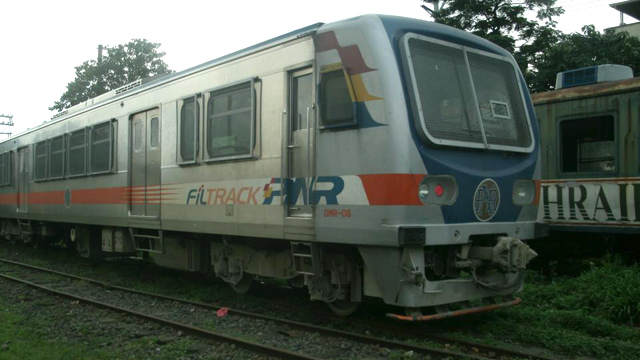SUMMARY
This is AI generated summarization, which may have errors. For context, always refer to the full article.

MANILA, Philippines – Remember the glorious past of the Philippine National Railways (PNR)? Senators want to bring it back and make the country’s cheapest mode of transportation even better.
Senators Cynthia Villar and Ralph Recto sponsored a bill extending the operation of the PNR by 25 years, renewable for another 25 years. The PNR is the state-owned agency that operates the railway system running in Luzon.
In separate speeches, Villar and Recto stressed the need not only to extend the life of the PNR, but also to ensure that the rail system becomes a viable alternative for commuters struggling with heavy traffic and overloaded buses and trains.
“While there is no debate that the PNR is a shadow of its former self, there is also no doubt that it could regain its former self, if not better,” Recto said on Tuesday, May 6.
“This bill shouldn’t simply extend the franchise of PNR but should expand its services,” added Recto, the principal author of Senate Bill 1831.
Villar, chairperson of the Senate committee on government corporations and public enterprises, explained that her panel decided to renew PNR’s charter for just 25 years, instead of 50 years to review and assess its performance.
Villar said that in requesting for the extension, the PNR committed to the following reforms:
- Improve the efficiency of its existing Metro Manila Commuter Line and expand the line northward to Malolos
- Automate the present fare collection system
- Revive the mainline south to Bicol and extend the south line onwards to Sorsogon
- Introduce freight service for goods via the existing at-grade PNR tracks
- Improve the utilization of PNR real estate assets
- Implement the highest standards of governance in its financial and management operations
Villar stressed the urgency of passing the bill because the PNR charter is set to expire on June 19. It is one of the measures that the Senate hopes to pass before Congress goes on break on June 14.
‘Underutilized asset’
Recto lamented the decline of the PNR, comparing its current state to its peak decades ago when the Philippine railway system stretched 1,140 kilometers. He said it now plies 43 kilometers or 1/20th of its former network.
“Before the war, one can board a train in Lucena before breakfast, switch to another train in Tutuban by lunch, and get off in Dagupan in time for dinner. And it wasn’t confined to Luzon alone. In 1907, the 36-kilometer Cebu-Danao line was inaugurated. This was further extended south to Argao,” Recto said.
“In this age of bullet trains, the lumbering PNR coaches we see today may impress us as museum pieces,” he quipped.
Recto said other problems include the PNR’s P23 billion liabilities reported last year, and the “robbery” of its land, which ended up in private hands.
Still, Recto said the PNR holds huge potential. He said last year, it managed to carry 20 million passengers. He said this amounts to half-a-million busloads of passengers a year, easing congestion in Metro Manila.
“Thus, just doubling the number of trains would mean increasing the number of its passengers to 40 million annually – equivalent to one million bus trips,” Recto said.
The senator said it is crucial to rehabilitate the PNR as the Philippines is “nearing traffic Armageddon,” a reference to the heavy traffic in Metro Manila and major cities.
“When the queue to the MRT is as long as the distance to be travelled, then it is time to maximize the underutilized asset that is the PNR,” Recto said.
Trade, regional connectivity
Citing the position of the National Economic Development Authority (NEDA) and PNR, Villar said extending the PNR charter will yield economic benefits:
- It supports the government’s thrust in improving connectivity and efficiency among urban centers and regional growth hubs
- It offers the cheapest mode of transportation to a wide geographic area, with fare amounting to P0.71 per kilometer as compared to jeepneys and buses with P2 per kilometer. “It is worth noting that PNR has not increased its fare matrix in the last 20 years.”
- Discontinuing the PNR service will displace passengers who come from “the lowest earning C and D economic bracket” of the population.
Villar said government subsidy to the PNR was P32.7 per passenger, less than the subsidy granted to the Light Rail Transportation Authority (LRTA) worth P36.40 per passenger.
“I would also like to highlight that railways are superior to other modes of mass transportation in terms of minimal impact on environment and efficiency of land use,” Villar said.
The PNR operates commuter lines from Tutuban to Santa Rosa, Laguna, and from Naga to Sipocot. The long-distance service to Legaspi, Bicol was suspended in October 2012 because of damages to bridges due to typhoons.
Villar said though that the PNR promised to resume the service by September 2014, with a test run planned in June. – Rappler.com
Add a comment
How does this make you feel?
There are no comments yet. Add your comment to start the conversation.